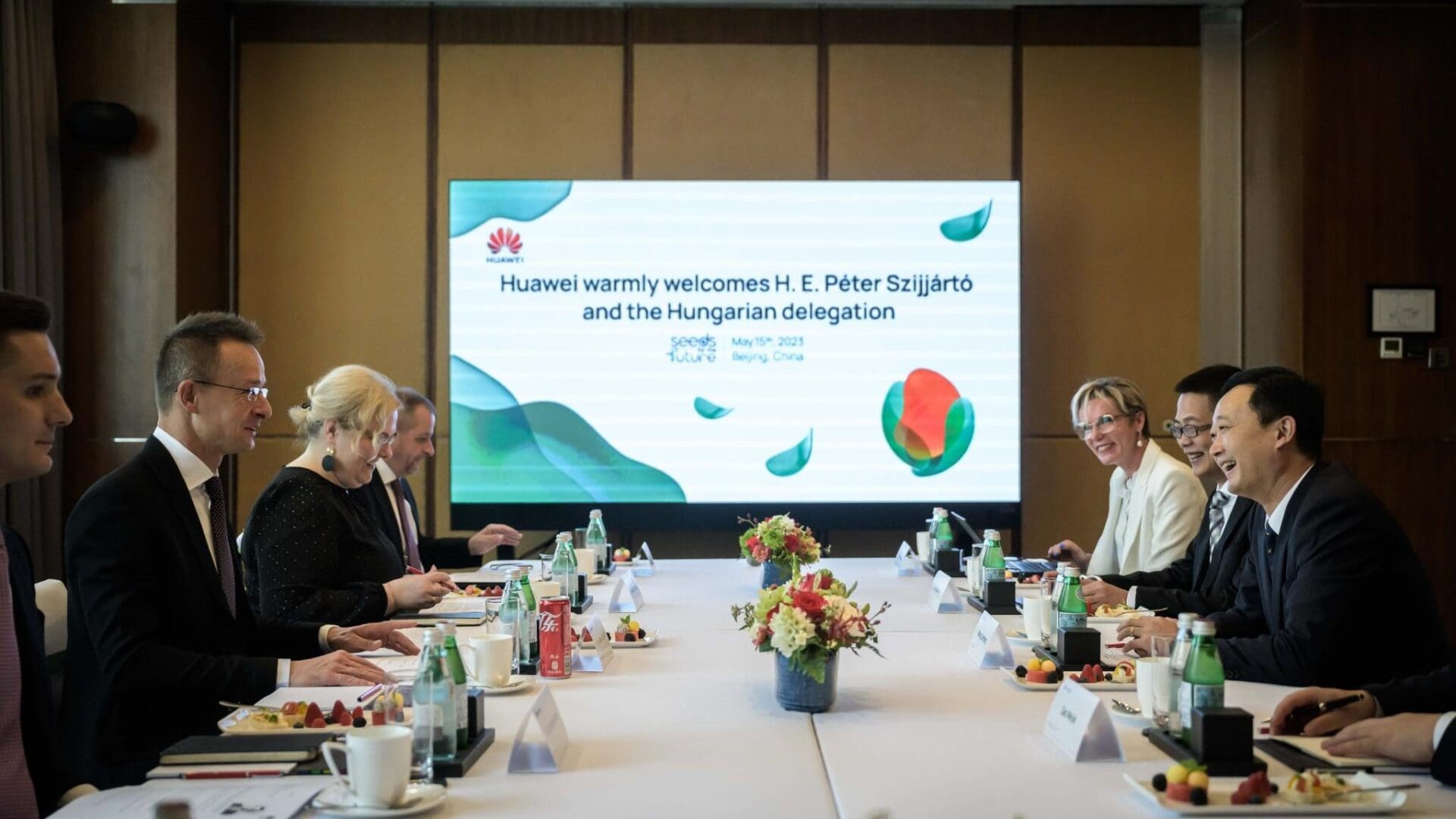‘Hungary is at the forefront of digitalisation, and Huawei plays a crucial role in this,’ Minister of Foreign Affairs and Trade Péter Szijjártó stated on his Facebook page, posting about representatives of Huawei and the University of Public Service (UPS) signing an agreement on the Seeds for the Future scholarship programme in Beijing on Monday.
The minister explained that ‘with the help of the company, the development of the 5G network is ongoing nationwide, raising the technological level of our economy, and we are working towards ensuring internet access in over 90 per cent of Hungarian households by 2050.’ ‘We maintain our position regarding global telecommunications suppliers: that
no one should be excluded from competition based on their country of origin,’ Péter Szijjártó wrote.
He added that Hungary will continue to provide an open and fair economic and business environment for foreign investors, where the only criterion is that companies must respect Hungarian laws and regulations.
According to the minister, ‘Huawei appreciates all of this, which further expands our cooperation. The company’s scholarship programme will also be launched at the University of Public Service, focusing on research and innovation related to 5G.’
In their statement released on Monday, 15 May, Huawei said the goal of the Seeds scholarship programme, offered by the global provider of information and communication solutions, is to foster talent in the field of technology, including supporting student research on 5G. The multi-million forint scholarship fund can also be used for student projects involving the integration of technology into environmental protection or the study of the Chinese technology sector’s economy.
According to the information, Huawei launched the Seeds Scholarship Programme in Europe in 2021, spanning twelve countries, to assist the most talented and ambitious students in their career development. Previously, among Hungarian universities, the University of Pécs, Széchenyi István University in Győr, and the Óbuda University joined with nearly 30 student projects, resulting in successful work presented at the National Scientific Students’ Associations Conference. For instance, a student from the Pollack Mihály Faculty of Engineering at the University of Pécs, Dóra Simon, achieved first place in the technical sciences section. She conducted comprehensive research on the application of virtual reality (VR) in accident prevention-oriented construction site training.
The University of Public Service joined the Seeds scholarship programme during the official Chinese visit of the Hungarian Minister of Foreign Affairs and Trade. The agreement was signed by Nóra Falyuna, Head of the Rector’s Cabinet of the university, and Xie Qiulian, Executive Director of Huawei Technologies Hungary.
Xie Qiulian stated, ‘At Huawei, we consider it important to introduce the latest technologies to young talents and show them how science and technology can change the world. In 2008, we launched our self-study educational programme, Seeds for the Future, which has been a great success with the participation of around 4,000 European students. Therefore, we decided to expand and create a scholarship programme as well. We chose the National University of Public Service as our new partner because they pay special attention to pressing issues of our time, such as training environmental and water management professionals, researching the Chinese economy and technology, or cybersecurity.’
According to a statement sent to MTI, the Hungarian subsidiary first entered into a support agreement with the university in 2014, and in 2021, they highlighted
the important connection between technology and nature conservation
with a project where the company started assisting researchers at the Faculty of Water Sciences of UPS with solar panels. UPS scientists began testing and developing remote sensing applications for the surveying of the dead branches of the Danube in the Gemenc nature conservation area in the Duna-Dráva National Park, with a focus on precise bathymetric surveys using multibeam devices. This procedure enables the highly accurate measurement of a wide strip of the riverbed beneath the water surface and also directly serves the exploration of underwater objects, which has implications for disaster management and flood control.
Continuous electrical power supply is necessary for the measurements, which should be environmentally friendly, lightweight, and therefore portable in the national park. Huawei has developed a mobile solar panel solution for charging batteries, which can be used on a moving survey boat serving educational and research purposes.
Regarding the scholarship agreement, Péter Szijjártó stated that one of the main pillars of the government’s foreign economic strategy is the economic relationship with China. ‘Companies like Huawei, which not only invest and create jobs in Hungary but also share technological knowledge and actively support domestic higher education, play the most important role in this,’ he declared. ‘We are grateful to Huawei for providing financial and professional assistance to support our young talents and university work,’ said Nóra Falyuna, Head of the Rector’s Cabinet of the university, following the signing.








